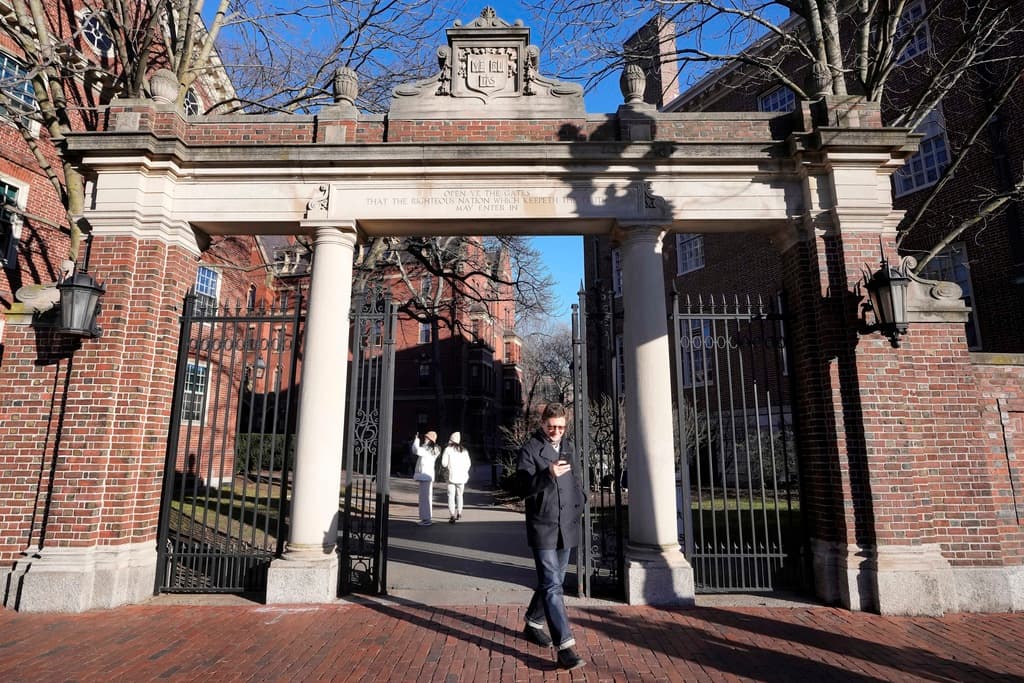Ivy League Schools Lose Their Luster Among Corporate Hiring Executives as ‘New Ivies’ Fill the Void
The politicization of elite campuses could be driving some employers away.

Watch out, Ivy League schools: top employers might be shifting their recruiting efforts toward “the New Ivies.”
A Forbes survey of corporate hiring suggests that to some employers, storied college campuses are losing their luster as other institutions rise in allure. Disqualifying the “Ancient Eight” Ivies — Harvard, Yale, Princeton, Brown, Penn, Columbia, Dartmouth, and Cornell — as well as the “ivy plus” schools — Stanford, MIT, Duke, and the University of Chicago — Forbes draws up a list of ten state universities and ten private schools it declares the “New Ivies.”
The schools all have high standardized test scores — on average, a 1482 SAT and 33 ACT, according to 2022 admissions data. The schools, ranging from Binghamton University in New York, with an acceptance rate of 42 percent, to Rice University in Texas, with an acceptance rate of 9 percent, are considered by Forbes “places that still rely heavily on objective measures of success.”
“Almost all of the 20 schools on our list have seen their application volumes rise in the past few years, reflecting increased interest from prospective students,” Forbes staff writer, Emma Whitford, tells the Sun, “and there’s definitely rising interest from employers in hiring graduates from these schools.”
In one striking example, Harvard College reported a decline in early admissions applicants of 17 percent, down to 7,921 in December from 9,553 in 2022, although this year marked the fourth in a row that more than 50,000 prospective students applied for admission.
It’s true, though, that one-third of American presidents and the current Forbes 400 list of richest Americans are Ivy alums. The current Supreme Court boasts eight Ivy graduates. The demand for elite schools is still high, from both prospective students and employers.
“For better or for worse, the Ivies and other top schools still have status, and American parents of college-age students are as status-conscious as ever,” the director of open learning at American Jewish University, Mark Oppenheimer, tells the Sun. “For years now, there has been talk that students will abandon elite schools, but where are the examples of students admitted to elite schools, who can afford to go, and are turning them down for less prestigious schools?”
Mr. Oppenheimer, who has taught at Stanford, Wesleyan, Wellesley, NYU, Boston College, and Yale, says that this kind of “wishful thinking” is spun “largely by conservatives who despise what they see as the liberal tilt of elite campuses.”
The politicization of those campuses, though, could be driving some employers away, if not status-hungry students. “Some employers feel the public college graduates are a better cultural fit at their companies,” Ms. Whitford tells the Sun, while “others say that Ivy League grads aren’t as well-prepared for the workforce as they used to be.”
Amid campus protests over the war at Gaza, some prominent alumni have retracted university donations and made clear their disinterest in hiring students partaking in anti-Israel protests. “We’ve seen some prominent business people frustrated especially by how the Ivy League schools have handled reports of anti-semitism,” Ms. Whitford says, “which has made them more rigorous about vetting potential employees from those schools.”
That adds to an ongoing souring on higher education, which more and more people on both sides of the political aisle say costs too much and fails to prepare students for the workforce. Trade schools are becoming an alluring alternative.
“On the political right, some call for greater funding for technical programs. On the political left, ‘free college for all’ initiatives typically fund study at two-year colleges,” Carleton College professor, Nathan Grawe, who published the book, “Demographics and the Demand for Higher Education,” tells the Sun. “While labor economists find exceptionally high expected returns to four-year degrees, such perceptions are important to the success of higher education.”

